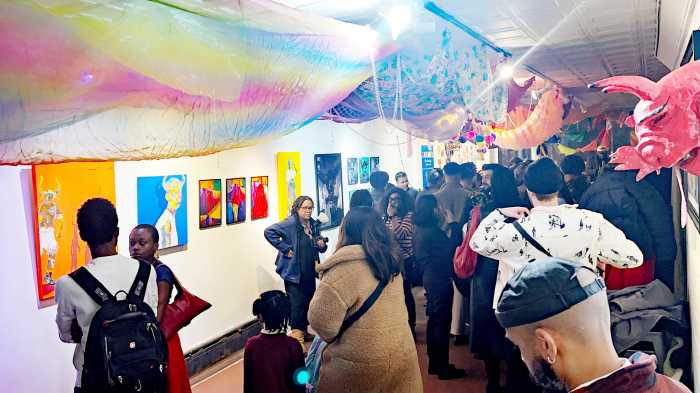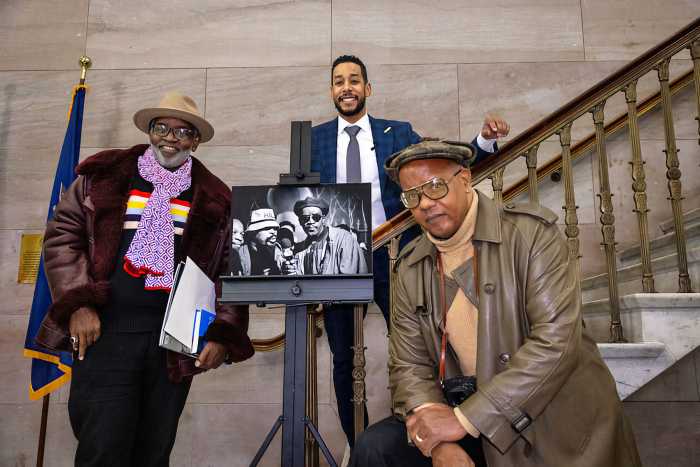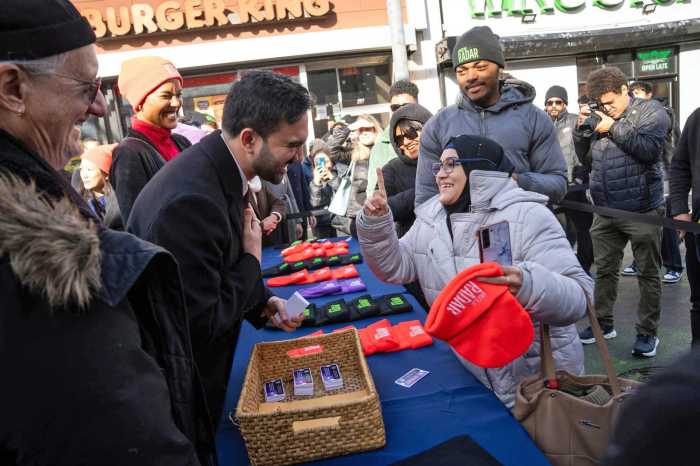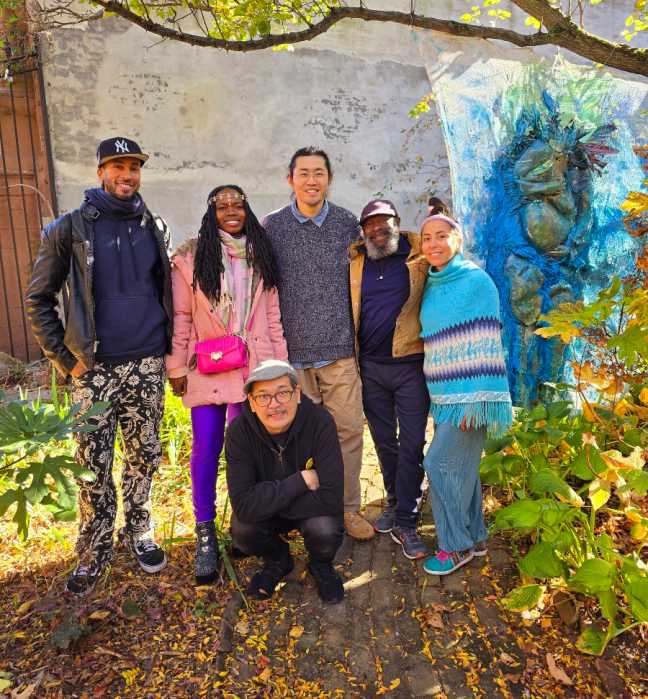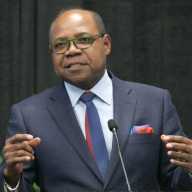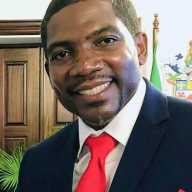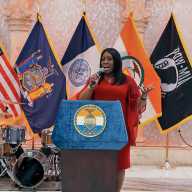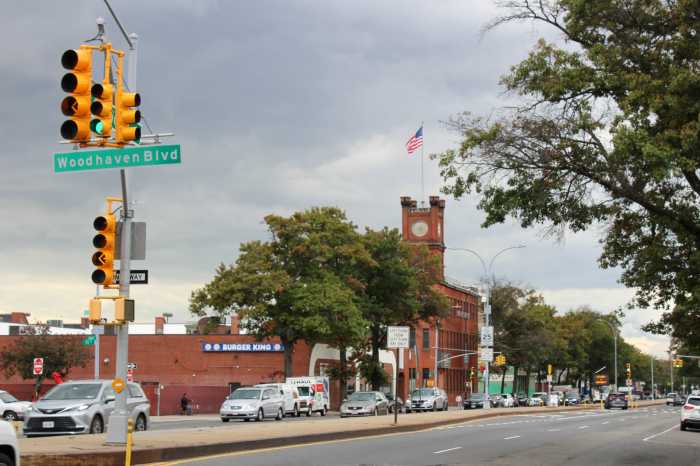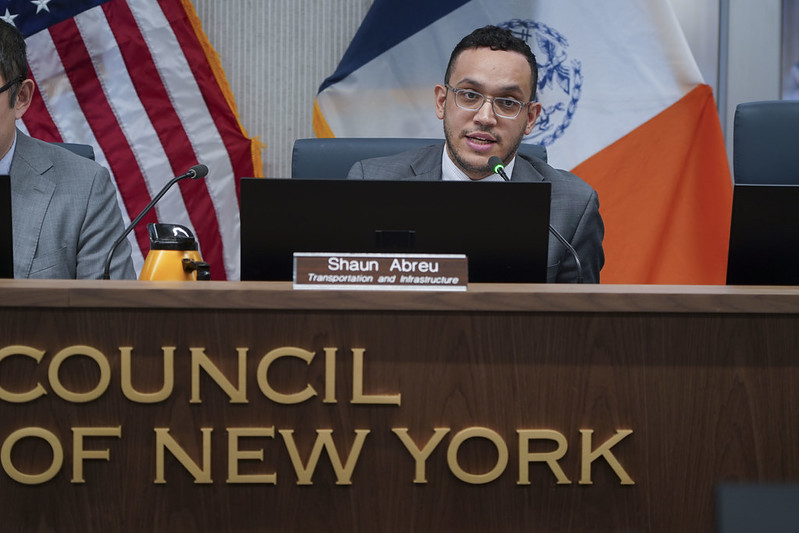The anti-poverty nonprofit Oyate Group is expanding its mission from pandemic relief to cultural preservation with its Caribbean Arts Series. This initiative recently hosted its second annual Indo-Caribbean Arts Exhibition in the Bronx.
Themed Indentured Survival 2025: “Current Currents,” the multidisciplinary showcase brought together 17 artists in visual art, literature, film, and spoken word to highlight the complexity of Indo-Caribbean identity. Timed to coincide with Indian Arrival Day, the event underscored the Oyate Group’s growing role in blending social service with cultural expression.
“We transitioned from COVID support to our bread and butter — youth and community development,” said Jason Autar, chief operating officer of the Oyate Group. “That now includes everything from small business grants and seed funding to internships for undocumented individuals.”
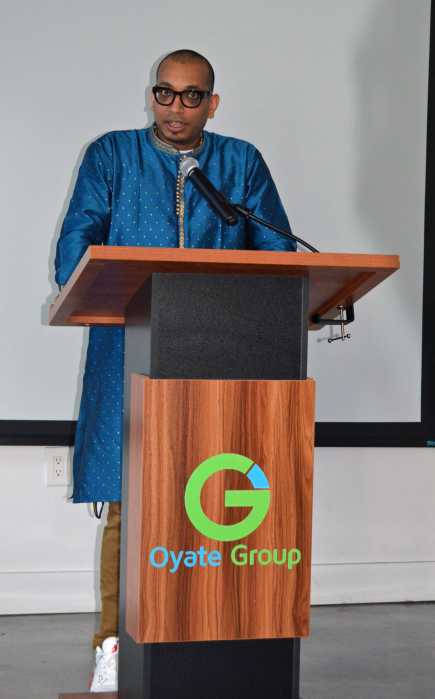
Founded during the pandemic, Oyate Group initially vaccinated over 40,000 residents in New York City public housing. Today, its expanded programming includes Community Capital, which provides up to $50,000 in seed funding for entrepreneurs, and a Grubhub partnership offering $10,000 grants to local restaurants.
The Indo-Caribbean exhibition, held in a packed Bronx venue in May, was curated by artist and educator Raqeebah Zaman and grew from her experiences navigating cultural invisibility.
“Growing up as a Muslim Caribbean, Indo-Caribbean person, I often felt that identity was excluded or not acknowledged,” Zaman said. “People didn’t understand that you could be both Muslim and Caribbean.”
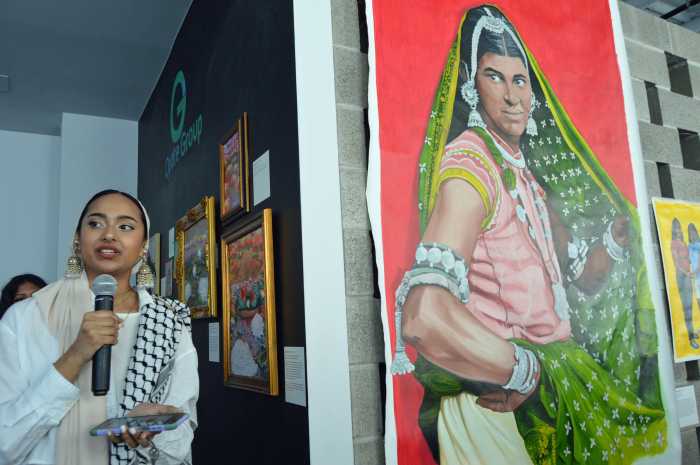
Zaman’s vision for “Current Currents“ was both historical and contemporary. It reflected on colonialism, migration, and the inherited traumas of indentureship—themes rarely centered in mainstream arts programming.
“There are different religions, different mixtures of Indo-Caribbean people, and even within those religions, different practices,“ she said. “The exhibition was about honoring that multiplicity.”
Attar emphasized that the arts play a vital role in Oyate Group’s broader community impact strategy.
“Sometimes the arts are not valued as they should be,“ he said. “This space allows us to use art as a medium to document and validate the Indo-Caribbean experience.”
The exhibition featured film screenings, spoken word performances, poetry readings, and mixed-media art, allowing for varied entry points into conversations about identity and belonging.
“Art speaks beyond policy,“ Zaman added. “It reaches people emotionally — through visuals or sound — and creates connection in ways language can’t always achieve.”
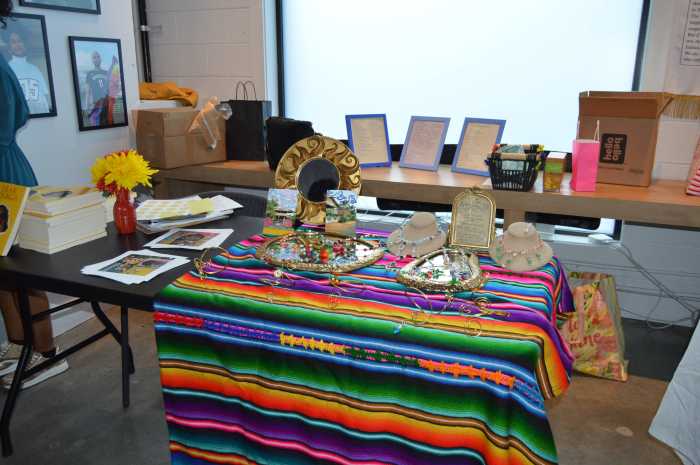
The “Current Currents“ theme was also a response to what Zaman described as ongoing tactics of division — racial, religious, and socioeconomic — that continue to affect marginalized communities.
“Divide and conquer has been a strategy for centuries,“ she said. “We’re trying to ensure we don’t turn against one another. The Caribbean has led in diversity, but there is still work to be done.”
The Bronx, with its growing Indo-Caribbean and Afro-Caribbean populations, provided a fitting backdrop for these conversations.
The Indo-Caribbean Arts Exhibition marked the fifth event in Oyate Group’s Caribbean Arts Series, which previously included literary events and film screenings. Plans are underway to expand the format beyond single-day events, with organizers looking to secure larger venues and longer exhibition timelines.
“We’re talking about creating space with more longevity,“ Zaman said. “These shows shouldn’t be one-day-only experiences.”
She is already developing themes for future exhibitions, aiming to align them with ongoing political and social realities affecting the Indo-Caribbean diaspora.
“I want the themes to be relevant to what our community is facing now — whether it’s around immigration, race, or global politics,“ she said.
As Oyate Group continues to support youth leadership, entrepreneurship, and undocumented workers through scholarships and internships at institutions like NYU and Columbia Teachers College, its cultural programming highlights a powerful truth: community development includes cultural affirmation.
“The Indo-Caribbean exhibition isn’t just about art,“ Attar said. “It’s about equity. It’s about giving space to voices that have long been unheard.”
Zaman agrees. “It’s about collective healing,“ she said. “And I’m always curious — when we give artists space, what can we create together?”



